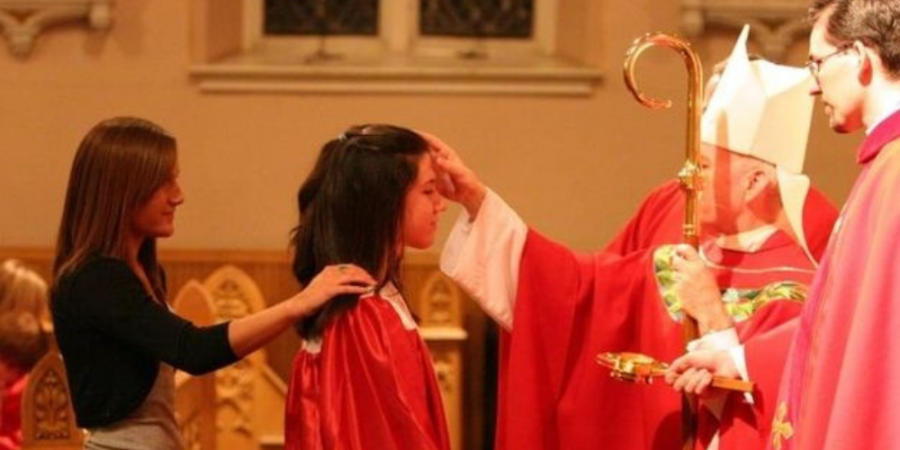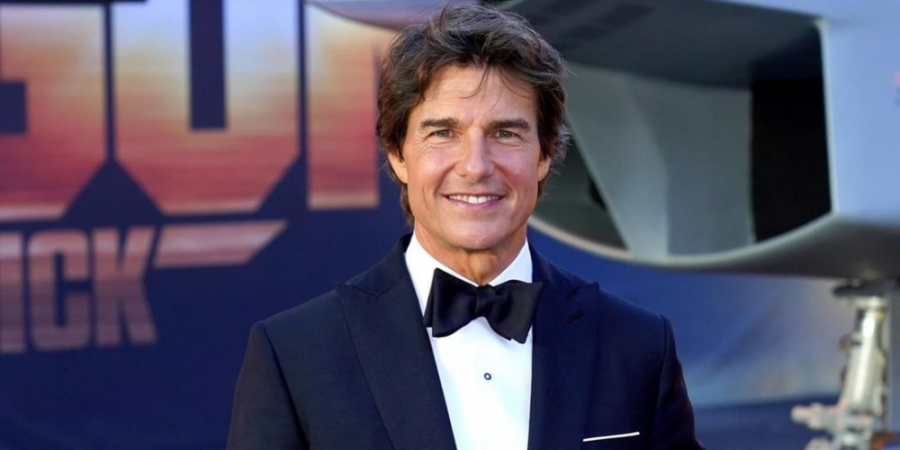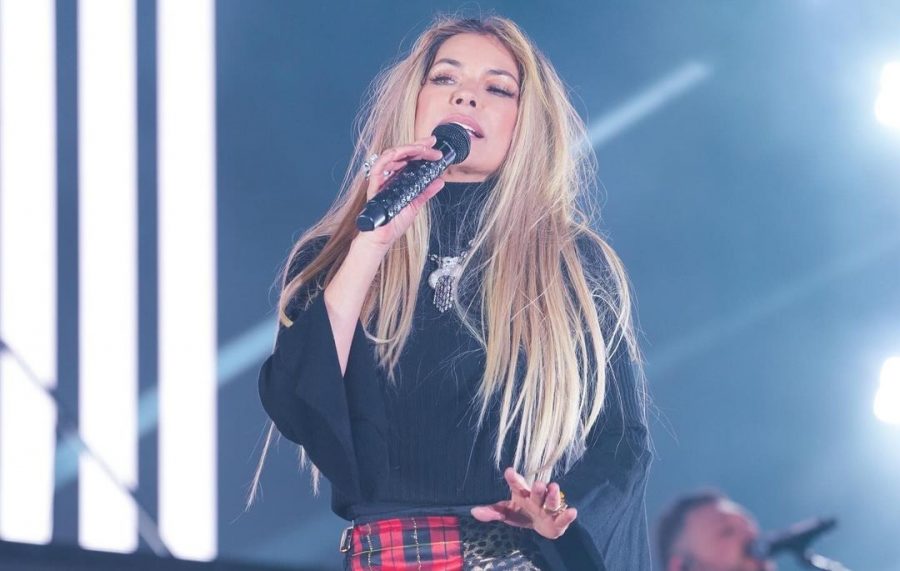North Korea has agreed to send a delegation of its top cheerleaders to its arch-rival in the south to participate in the Winter Olympics next month which marks their fourth appearance.
A Rare Sight
Known in South Korea as “the army of beauties”, because of their killer looks and sharp moves, these 20-something year olds become a spectacle for the locals to witness whenever they visit the country.
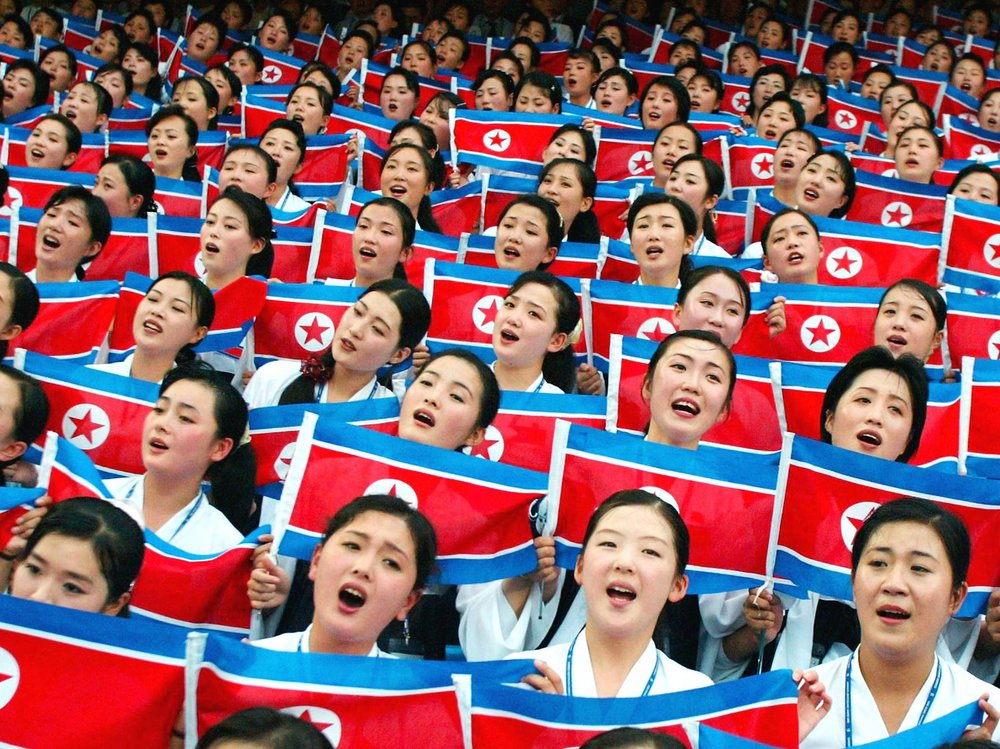
North Korea’s cheerleaders during the opening ceremony of the World Students Games
The cheerleaders are especially important in the North, maybe partly because the current wife of the North Korean leader, Ri Sol-ju, was once part of this group when they participated in the Asian Athletics Championship at Incheon in 2005. Hence, the tradition of sending the group internationally for competition platforms amid growing global sanctions against North Korea is a priority for the state.
After the end of the Korean War in 1953, the North and South remain on strained ties, with zero telephonic and postal networks connecting the two regions. The North carefully vets all delegations to be sent to the South, hence only after receiving clearance from state officials, can delegations visit the South.
Movement within the South are heavily restricted and carefully monitored. Reports suggest this year’s delegation may be accommodated on a cruise ship banked in Sokcho, which would enable easier surveillance.
Cheerleaders are Picked Based on Tough Criteria by the North Korean Regime
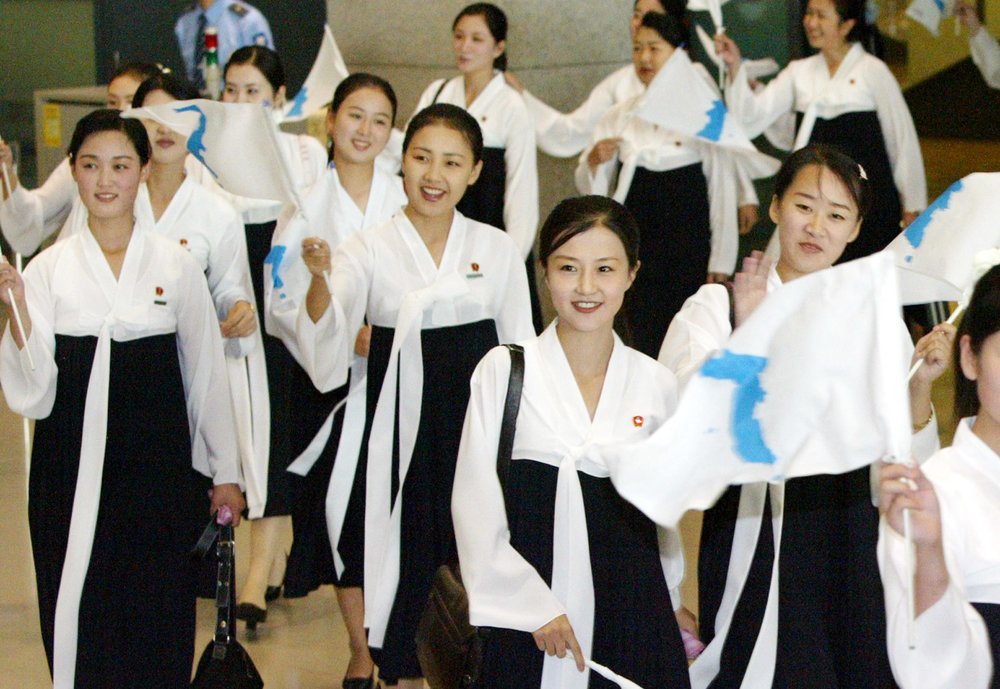
North Korean cheerleaders are picked based on a very tough criteria such as a good family background and minimum height of 163 centimetres.
According to a North Korean defector and now researcher running the World Institute of North Korean Studies, An Chan-il, cheerleaders are picked based on a very tough criteria such as a good family background and minimum height of 163 centimetres.
Students from the Kim Il-sung University and band members are chosen, the former because of the elite status held by the university and the latter because of their ability to play instruments.
A Spectacle for the Southerners
North Koreans, due to heavy travel restrictions to the South, are viewed in awe by the Southerners whenever they are able to visit. The first of such appearances by this cheerleading squad was made at the 2002 Asian Games held in Busan.
Around 300 North Korean cheerleaders arrived dressed in gorgeous traditional Korean dresses called hanboks, waving the unification flags (a flag which represents the entire Korean peninsula).
To welcome them, hundreds of Busan-ese reciprocated the peaceful gesture and waved the unification flags while lining alongside the port where the cheerleaders’ ferry had arrived. Some homes also waved the flag in solidarity to show support for more peaceful relations between the two Korean nations.
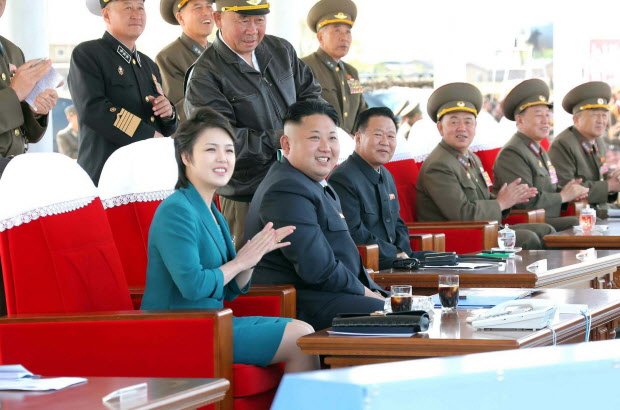
North Korean supreme leader Kim Jong-Un and his wife Ri Sol Ju who was once part of the famous cheerleading group when they participated in the Asian Athletics Championship at Incheon in 2005.
Huge Fan-base
Although the actions of the North are always viewed with caution by the South Koreans, the cheerleaders are revered immensely because of both their immense beauty and tight choreography. The Southerners are die-hard fans, and it’s evident by the 2005 TV commercial which featured Cho Myung-ae, a former North Korean cheerleader, alongside South Korean pop sensation Lee Hyo-Ri.
According to a spokesman of the Pyeongchang Organising Committee, this not only means good business as it will “help with ticket sales” but also is a step towards having an Olympics event that promotes peace and harmonious relations between the two otherwise distraught states.
This support is not limited to only the cheerleaders coming from the North. Other players, such as those who participated last year in the Women’s Ice Hockey match in Gangneung representing North Korea, saw an inflow of support by pro-unification groups in the South.
Growing Tensions
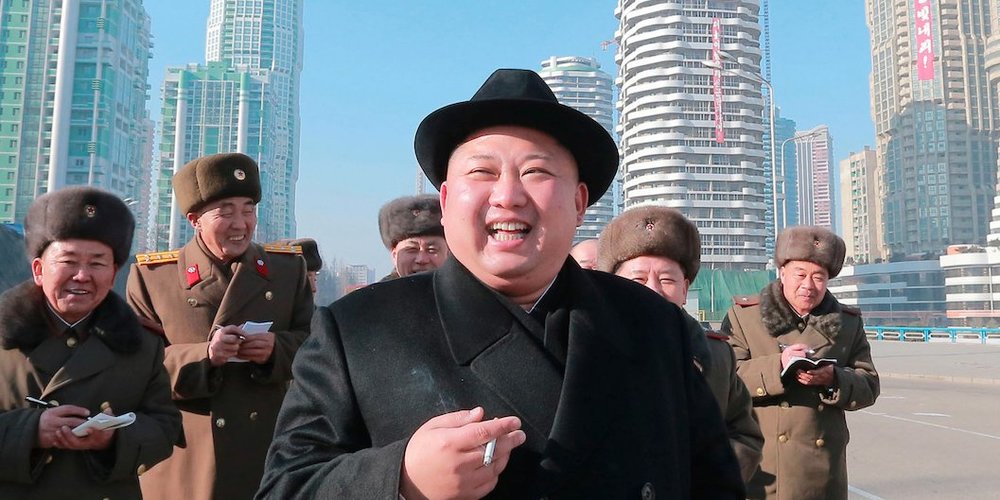
It is believed that the current concerns on North Korea’s nuclear program, might put greater strain on the country’s ties with its Southern counterpart
The growing focus of North Korea on its nuclear program, amidst global sanctions and opposition, has put greater strain on the country’s ties with its Southern counterpart. Hence, there are speculations that the popularity and support previously commanded by the cheerleaders may have diminished.
Also, it is illegal to display the North Korean flag, as well as play the North Korean anthem, in the South. Although it would be displayed at the Olympic games, as Olympic venues fall under the jurisdiction of IOC protocols, a display of North’s flag or anthem anywhere outside the venue could be problematic.
The flag could be an issue, as South Korea has secured hosting rights for the Winter Olympics after two failed attempts and would want its flag shown. However, in the past, the North and South both have had to rally behind the unification flag during the opening ceremonies of the 2000 Olympics in Sydney, the 2004 Olympics in Athens, and the Torino Winter Games in 2006. It would be interesting to view the reaction by the South on February 9th when the games officially kick-off.






